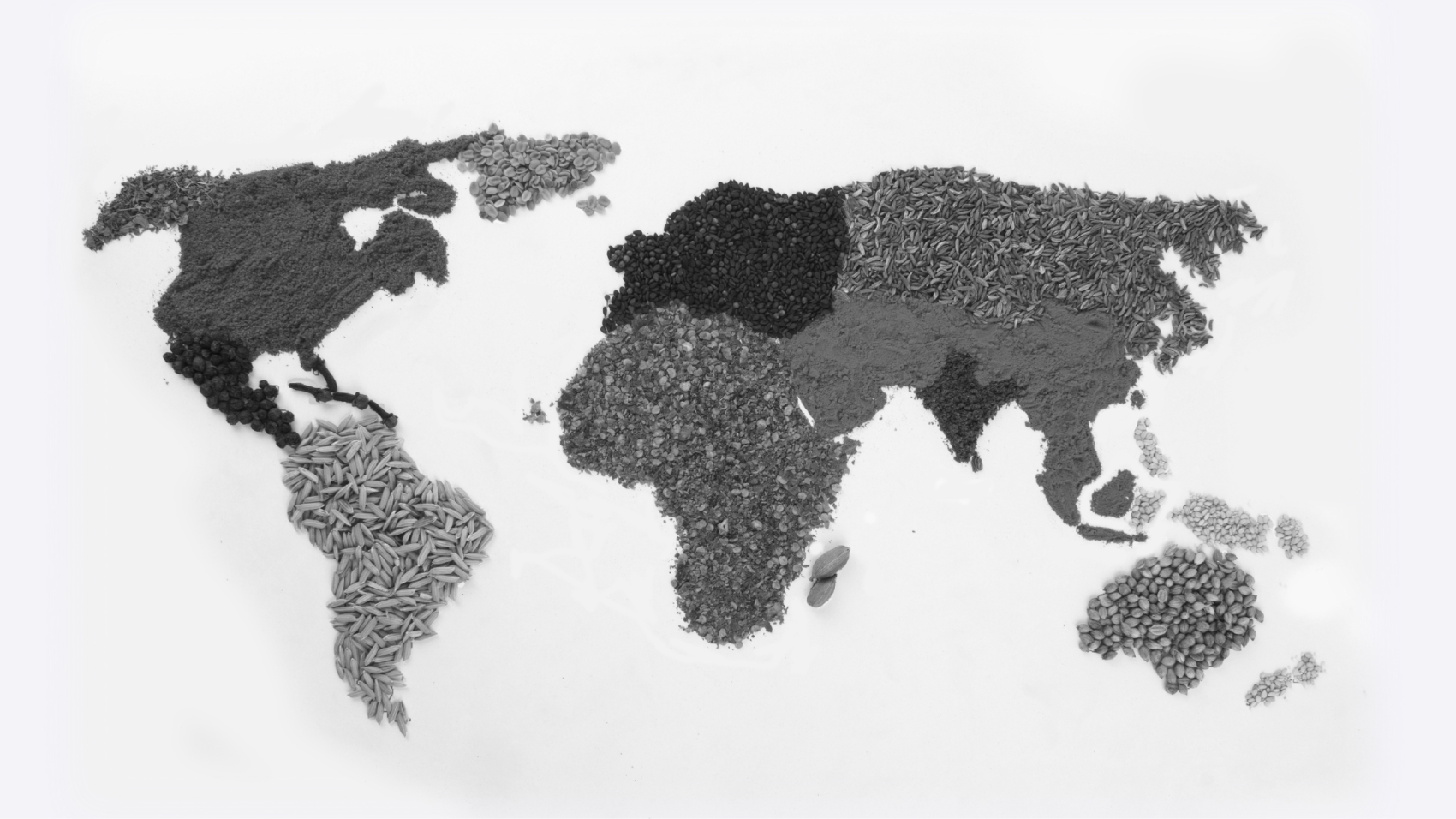Since early 2020, the world has been living under various degrees of lockdown measures due to the coronavirus pandemic. I personally have found this period to be one of the most challenging times I have faced, but I also found some self-enriching moments as I spend greater time on self-reflection, planning, strategizing and thankfully, lots of invaluable companionship with my family.
Shifting Gears from Pandemic to Endemic – The Changing of Mindsets
The only thing that is constant in life is change. Over the past two years, we have had to adapt with the prevalence of COVID-19; the sort of life-changing occurrence that many never saw coming. It has affected every single person you and I may know; be it from the perspective of our livelihoods, individual health and that of our loved ones, our ability to travel freely, and even triggered some of our respective governments to go into a state of uncertainty.
In search of a fresh approach to improve education in Malaysia
The quest for how to radically improve the quality of education is a top priority for many governments around the world. Some have formed independent commissions and special task forces to develop recommendations for how best to improve education for all. Many of these commissions and task forces take a common point of departure in their methodology: what are the best practices of countries with high quality education and what can other countries learn from them?
Merdeka, in the midst of a pandemic
On the 31st of August 2021, Malaysia will celebrate 64 years of independence. Over the last two years, the usual fanfare associated with the occasion (among others) has been replaced with quieter celebrations at home under what seems to be a perpetual state of lockdown.
Why we assist SMEs to transform to unlock their full potential
Small-medium enterprises (SMEs) are the backbone of the Malaysian economy, accounting for 38.9% of Malaysia’s total GDP in 2019. Furthermore, share of SMEs exports to total exports in 2019 was 17.9% and SMEs employment comprised of 48.4% from Malaysia’s employment (i.e. 7.3 million persons in 2019)
The Global COVID-19 Index – From Vision to Reality
They say some of the best ideas come from the most unlikely of places. The Global COVID-19 Index (GCI) origin story is no different. The GCI’s inception came against a backdrop of a very difficult time for PEMANDU Associates. As an organization with most of our existing contracts abroad, COVID-19 hitting in full force meant calling all our colleagues back home in the interest of their health and welfare.
Reflections for 2020 – Surviving and Thriving in a Year of Disruptions
2020 arguably have been a disruptive year. From averaging one flight a week to meet clients and key decision makers around the world, I found myself grounded at home like the rest of the nation when the Covid-19 pandemic hit. PEMANDU Associates are accustomed to assisting clients near and far to introduce disruptive changes that bring big, fast, tangible results over the past decade; however even then we found ourselves literally grounded and facing the disruption just like everyone else.
As a start, PEMANDU Associates’ teams of consultants are often abroad to assist international governments in their quest to transform through national and economical agendas. In March, our team of consultants were in countries around the world such as St Lucia, Djibouti, Ethiopia and Oman when Malaysia announced the nationwide Movement Control Order (MCO). With the international borders being closed swiftly, it was logistically challenging to ensure our staff can return to Malaysia safely. As the MCO commenced, the reality of how drastically the economy and our way of life would be impacted set in. It was clear that the effect of the pandemic would be here to stay for at least the next 18-24 months and the word, crisis, is no longer an exaggeration of the state of things.
Throughout my career I have weathered numerous crises – from dealing with industrial strikes in my days in Sri Lanka to restructuring Malaysia Airlines, the crisis presented this time is no less harrowing. PEMANDU Associates being a firm that serves clients all around the world with our 8 Step Big Fast Results methodology, meant we travel internationally to carry out our engagements in person. The pandemic-induced restrictions mean this method of delivery is now curtailed. From our inception as the Delivery Unit for the Malaysian government to becoming a fully private consulting organisation, we are also accustomed to serving large and complex organisations that deal with competing priorities daily such as multinational corporations and governments. However, with 98.5% of business establishments in Malaysia being small-medium enterprises (SMEs) and contributing 38.9% to Malaysia’s GDP, it was clear those who require our help in crisis management in order to transform and pivot most urgently are SMEs. On top of that, the most essential tool in managing a crisis is to have clear, unbiased data and information in order to make informed and timely decisions to ensure survival. With multiple sources and rampant disinformation on the pandemic’s situation, it was challenging for governments to quickly react with effective measures and policies which in turn, impacts businesses and citizens to make corresponding decisions that could save both lives and livelihoods.
PEMANDU Associates itself immediately embarked on crisis management and action plan formulation. As a firm that prides itself on assisting clients to quickly transform with sound information guiding timely decisions, the first step was to establish a crisis management team with a nerve center so decisions made based on available information can be communicated clearly to stakeholders. By formally declaring a crisis, the CEO of the organisation sends a clear signal that things are no longer normal and that a series of decisions would need to be taken based on actual situation the company is in by calmly reviewing the options available. By modelling the three scenarios of optimistic, pragmatic and pessimistic on the organisation’s cashflow position, it provided a clear picture of reality which effective and rationale decision to be taken to manage the crisis. From there, a thorough and concrete action plan must be put in place for it to be operationalized. This must also be communicated transparently and regularly to the staff members in order to ensure calm and buy-in for the actions to come.
This practical approach has proven to be effective not just for PEMANDU Associates, but also our new clientele in the SME segment where they require most assistance in these challenging times. We assisted a number of SMEs to establish their crisis management and operationalize their action plans, which ultimately helped them to weather this storm and saved their businesses. As these interventions were carried out during the height of MCO, our team worked literally screen-by-screen with our SME clients to outline their crisis management and action plan, as well as the subsequent communication and townhall sessions with their staff – all fully virtually. This illustrates the possibility of applying our expertise in transformation for various types and sizes of organisations, debunking the myth that consulting is only for government and large corporations that can afford it. It was also an excellent catalyst to challenge us to work differently with international travel and in person engagements on hold.
As the priority is to ensure the safety and well-being of our staff members and clients, we had to pivot quickly in utilising virtual engagement tools to support our clients and ensure operations can continue. The challenge with adopting the virtual medium for us where working in proximity with clients has been the norm was to still ensure the effectiveness of support can be retained. One example was we successfully conducted workshops and webinars for clients in Zambia to support their capacity building in performance management by quickly modifying our way of working to include templates and regular check-ins, as well as utilising various collaborative classroom tools to ensure the brainstorming process and outcome normally through group discussions can be maintained. However, the largest challenge for us were to conduct our signature Labs entirely virtually! These engagements are usually 4-6 weeks long, with more than 100 persons gathering in the same space to work intensely to achieve tangible outcomes. For the National Postal and Courier Lab, we worked alongside the Malaysian Communications and Multimedia Commission to conduct a 3 week Lab where approximately 100 members from 30 agencies and companies worked completely virtually to detail out the way forward for courier and postal industries in the age of low-touch economy.
We are also happy to be able to support our local clients to quickly explore and capitalise on areas where Malaysia can take advantage of in the new normal. Earlier in the year we worked with the government of Malaysia to conduct a study on the practicality, costs and benefits of implementing electronic invoicing (eInvoicing). Unlike traditional invoicing methods which send physical invoices or even digitally in PDF, electronic invoices are in a standardized format, allowing seamless interoperability across different accounting systems and software. Aside from time and cost savings, eInvoicing reduces requirements for physical interaction which is timely given our current environment. This initiative also coincides with the significant increase in emphasis on eCommerce and has the potential to significantly boost our economy. We also looked at the type of strategies that Malaysia can explore to stay ahead of its competition in ensuring talent retention and competency building in the highly competitive space of digital outsourcing.Being able to prioritise with limited time and resource is also a hallmark of PEMANDU Associates in our work with governments and companies. It is in this vein that we were engaged to help Malaysia quickly capitalize on the fast-growing halal pharmaceutical and food services. Both of these sectors are in the spotlight given the increased awareness on halal alternatives for pharmaceuticals and vaccines with the Covid-19 pandemic, as well as the rise of popularity in delivery services for food and their compliance to halal requirements which has yet to be examined closely despite Malaysia’s leading position as a halal food producer and provider. We outlined the sectoral roadmap for both industries for the next 5 years with interventions in order for sector players to capitalize on these high-growth markets that are ripe for picking thanks for the pandemic, and are in the process of continuing to support the growth of other high-potential halal industries.
Whilst we are busy assisting and supporting our clients to capitalize on new areas of opportunity and growth, we have also taken a leap in innovating quickly through the creation and development of world’s first Global Covid-19 Index (GCI). GCI was born out of the Firm’s belief that timely and effective decision making must be based on objective and up-to-date data from our years of working with governments around the world. Developed in collaboration with Malaysia’s Ministry of Science, Technology and Innovation (MOSTI) and with inputs and qualified endorsement by the World Health Organisation (WHO), the Global COVID-19 Index (GCI) is designed to pull and analyse data from verified sources for 180 WHO Member States into a single source on a daily basis. This makes it a truly comprehensive index on the pandemic available. With Severity and Recovery Indices, GCI aggregates publicly available data and measures to provide daily updates which proved to be invaluable in assisting governments and businesses to make timely decisions on relaxing or tightening measures in order to balance public health and economic activities. We also built further on gleaning the insights and best practices from countries who have done well in the Global Pathfinder Report, where countries can capitalize on these useful lessons to handle the pandemic.
Although the GCI meant we had to embark on an area our organisation isn’t known for, it demonstrates that firms that are willing to pivot and innovate quickly can achieve the unexpected provided it is grounded in sound methodology and practice approaches which brings additional value to clients. This is also the reason why we are extremely honoured and proud that GCI was recently awarded the coveted Chairman’s Award at the 2020 WITSA Global ICT Excellence Awards, as the award recognizes useful technology applications that have made tangible difference in public service, enhance connectivity or boost profitability.
As this challenging year draws to a close, we are also grateful for the opportunities it has presented to catalyse innovation and to pivot quickly to adapt to the new normal, in order for us to continue making a difference through our transformative methodology for a wider group of clientele. It is our fervent hope that as 2021 begins, that we would be able to assist our clients as they undergo their transformation to capitalise on opportunities emerging in the new normal whilst we continue to innovate, adapt and ultimately, survive and emerging stronger.
Should We Worry About Food Security Amid the Covid-19 Crisis?
Alarming developments of the novel coronavirus have triggered a wave of panic buying across the globe. People have thronged to the supermarkets, clearing out shelves of food and fighting over basic hygiene necessities such as hand sanitisers and toilet paper,
Business Unusual in the Time of COVID-19
The COVID-19 outbreak has tourism industries around the world on their knees. The pandemic has delivered one of the hardest blows to the global tourism industry.
Transitioning A Government Agency Towards Revenue Generation for Sustainability
A Halal Facilitation Agency has high aspirations of becoming a global mover in the halal industry. Under its new leadership, the agency is looking beyond its government mandate to become a revenue









